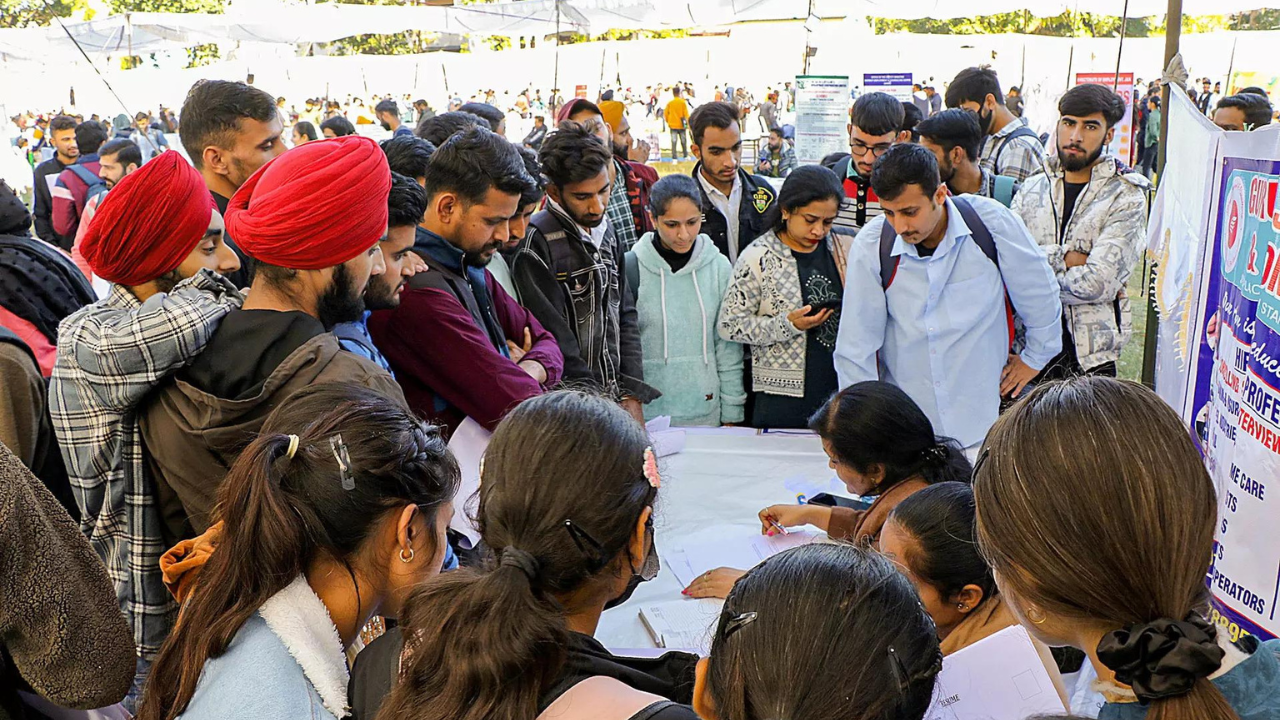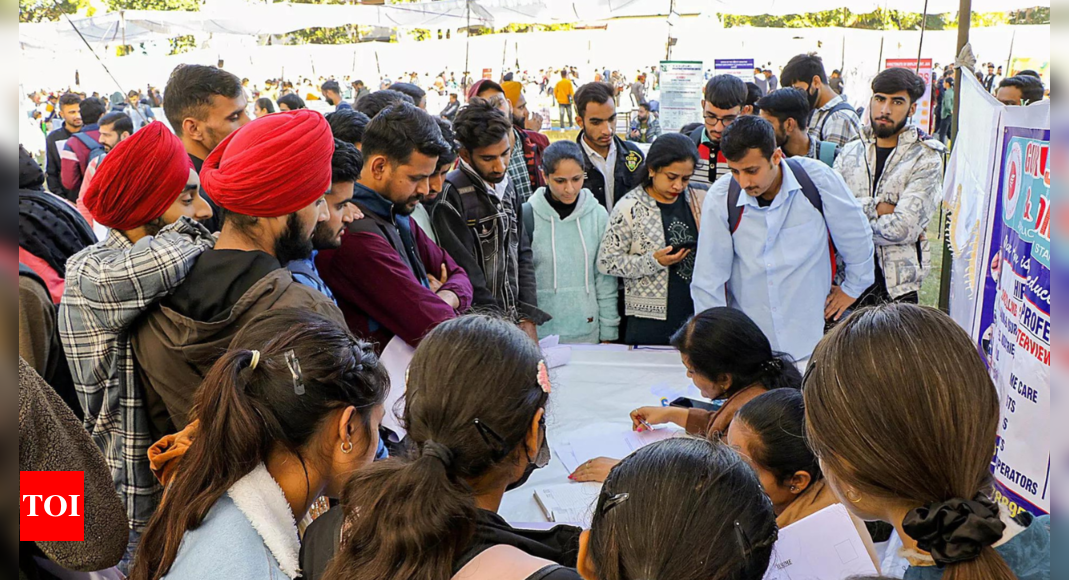
NEW DELHI: India’s unemployment rate is anticipated to decline by up to 97 basis points by 2028, according to a new report released by the Observer Research Foundation (ORF) on Tuesday. The report, titled India Employment Outlook 2030, highlights projections indicating a decline in the unemployment rate from 4.47 percent in 2024 to 3.68 percent in 2028 as India’s economy surges towards the USD 5 trillion mark.
The report highlights that India’s job market is evolving, boosted by the country’s rapid economic growth post the Covid-19 pandemic. With a young population, where the median age is 28.4 years, India will witness significant economic expansion, said the report.
The report indicates that with a GDP growth rate of 7.8%, India could potentially achieve the USD 5 trillion economy target by 2026-27, driven by strong private consumption and public investment.
Currently standing at just under USD 4 trillion in 2024, India’s GDP size is expected to grow further. The report also identified sectors deemed aspirational by its 600-million-plus population aged 18-35 years. These sectors are expected to act as engines of growth, potentially leading to a 22 percent increase in overall employment by 2028.
The service sector, in particular, is anticipated to witness substantial job creation, with each unit rise in services output expected to contribute to a 0.12% increase in employment. Ten high-opportunity sub-sectors within the services space including digital services, financial services, health services, hospitality, consumer retail, e-commerce, and renewable energy.
Furthermore, the report underscored the need to focus on women’s employment within the service sector, stressing the importance of investing in women’s skilling, financial inclusion, and entrepreneurship. However, the outlook for India’s manufacturing sector is less optimistic, despite initiatives like Make in India and the country’s competitive cost structures.
Technological advancements and automation pose challenges for employment in the manufacturing sector, leading to a decline in workforce absorption. To address this, the report suggests transitioning towards industrial value chains associated with the service sector for employment rejuvenation.
Nilanjan Ghosh, a director at ORF and one of the report authors, emphasized the importance of policymakers collaborating with stakeholders to bridge employability gaps and upgrade skills. He said, “Policymakers and public sector schemes could partner more closely with other stakeholders to identify employability and skilling gaps. The next step would be to upgrade curricula and skills to make India’s talent pool more industry ready.”
Ghosh added that nurturing entrepreneurship would be crucial for improved next-gen employment. “A new class of entrepreneurs could stimulate job creation, expand India’s startup ecosystem, spur innovation, and promote youth participation. But we also need to ensure that the workplaces of the future are gender-sensitive and inclusive,” he added.
The report advocates for a collaborative approach among stakeholders to achieve India’s vision of a digitally empowered, skilled, innovative, and self-reliant economy.
The report highlights that India’s job market is evolving, boosted by the country’s rapid economic growth post the Covid-19 pandemic. With a young population, where the median age is 28.4 years, India will witness significant economic expansion, said the report.
The report indicates that with a GDP growth rate of 7.8%, India could potentially achieve the USD 5 trillion economy target by 2026-27, driven by strong private consumption and public investment.
Currently standing at just under USD 4 trillion in 2024, India’s GDP size is expected to grow further. The report also identified sectors deemed aspirational by its 600-million-plus population aged 18-35 years. These sectors are expected to act as engines of growth, potentially leading to a 22 percent increase in overall employment by 2028.
The service sector, in particular, is anticipated to witness substantial job creation, with each unit rise in services output expected to contribute to a 0.12% increase in employment. Ten high-opportunity sub-sectors within the services space including digital services, financial services, health services, hospitality, consumer retail, e-commerce, and renewable energy.
Furthermore, the report underscored the need to focus on women’s employment within the service sector, stressing the importance of investing in women’s skilling, financial inclusion, and entrepreneurship. However, the outlook for India’s manufacturing sector is less optimistic, despite initiatives like Make in India and the country’s competitive cost structures.
Technological advancements and automation pose challenges for employment in the manufacturing sector, leading to a decline in workforce absorption. To address this, the report suggests transitioning towards industrial value chains associated with the service sector for employment rejuvenation.
Nilanjan Ghosh, a director at ORF and one of the report authors, emphasized the importance of policymakers collaborating with stakeholders to bridge employability gaps and upgrade skills. He said, “Policymakers and public sector schemes could partner more closely with other stakeholders to identify employability and skilling gaps. The next step would be to upgrade curricula and skills to make India’s talent pool more industry ready.”
Ghosh added that nurturing entrepreneurship would be crucial for improved next-gen employment. “A new class of entrepreneurs could stimulate job creation, expand India’s startup ecosystem, spur innovation, and promote youth participation. But we also need to ensure that the workplaces of the future are gender-sensitive and inclusive,” he added.
The report advocates for a collaborative approach among stakeholders to achieve India’s vision of a digitally empowered, skilled, innovative, and self-reliant economy.
Source link

